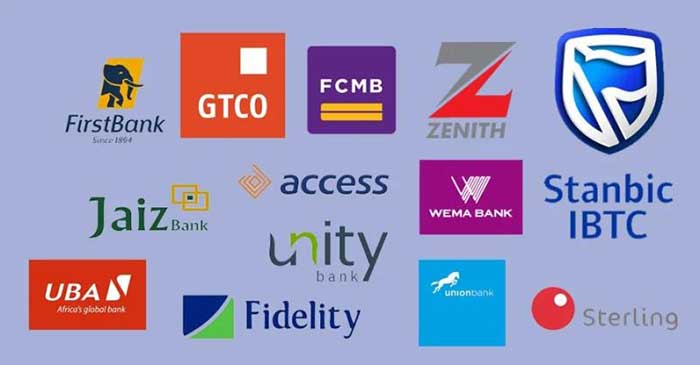A few weeks ago, most GTBank Account holders who use the bank’s mobile app began to notice a popup. It often asks customers to subscribe to the bank’s public offer and become a part-owner. Indeed, the offering of banking sector shares to the public has returned.

When I first saw the pop-up, I could easily understand it because I was once in the capital market arm of the old Intercontinental Bank.
I had a clear knowledge of what I saw. However, not many Nigerians will understand beyond the very things on that pop-up.
In the past, banks were not so able to reach as many customers directly, as they do today, when they offer some shares to the public. Technology is changing things drastically.
In those days, they would print offer forms and share to brokers or brokerage firms which will in turn reach their customers who buy shares.
What You May Not Be Seeing
It was an efficient process at that time because Nigeria’s technology exploitation was still in the budding phase.
Back in the days, one thing with situations like this, where almost all banks are offering shares, is that there is often a round-tripping of funds.
People will go to a bank to borrow money and also use the borrowed funds to buy public offer in another bank.
The money kept rotating within the banks without much increase witnessed. It became an issue after the public offer rush ended and the prices of bank shares crumbled.
The banks had money, yet not many investment opportunities were explored.
As a result of this past experience, one must therefore be sceptical, although with a bit of optimism, when considering buying the public offers.
Consider Nigeria’s Economy
Back in the days, from my studies and engagements with customers of Intersec, as it was fondly called, I realised that one thing every nation must avoid when banks sell shares is round-tripping.
Now, things are a little different and that is where it becomes interesting.
Take a look at Nigeria’s economy as we speak. There is rising cost of living, people’s earning is dwindling as a result of inflation, no one is certain the cost of a bag of rice will come down before December. There is a raise in salary (new minimum wage), but that money has not started coming into anyone’s bank account.
In fact, there is heightened pressure and that is triggering a protest plan.
Venting of frustration is what you could call it.
But in the midst of it, some persons are able to rake in some money and keep afloat while the nation’s ‘economy recycling’ lasts.
An Investor Mentality
On the other hand, the number of persons that will be confident enough to go to the banks to take loans to buy shares will be very low. This is due to the very high interest rate of over 26%.
Anyone who is so confident of his earnings without a fraudulent mentality will only go to Cash-apps to borrow to buy shares.
Unfortunately, most people who borrow from those apps do not have an ‘investor mentality’.
Not many of Nigeria’s young generation believe so much in buying shares. Basically, this is largely because most citizens have been forced to ‘live in the now’.
For a person to invest in the public offer of the banks, the individual must have an investor mentality.
This is necessary, because there is no quick cash-out from the public offer you buy now. You should come with a long-term investment in mind.
Invest What You Can Leave For Years
From the price of GTBank that I have monitored for the past few days, the public offer is at ₦44, but the Bank’s shares on the floor of the exchange have traded at a price below ₦44.
This is also another sign that your investment in this public offer has to be based on a long-term plan.
Do not borrow to buy shares if you do not have a good means of repayment within the agreed time.
Do not rely on the shares you want to buy now to repay a loan collected to buy it. You could run into a huge debt.
You see, the banks need the money and the situation of Nigeria, as we speak, makes it amazing for the banks.
With a high interest rate, the chances of round-tripping are very low.
In fact, genuine money will come in from this public offer to enable the banks to sustain the level of technology required to be a bank in this era and in coming years.
Why is this public offer necessary?
Imagine if a hacker gets into the banking system of the GTBank, having one of the highest customer bases.
Imagine how much pain this could bring.
But with adequate security and technological system, the banks are largely able to ward-off many attacks.
Furthermore, there is a major reason this public offer push will be hitting our screens now and in coming months.
Why The Public Offer
A few months ago, a spokesman for the Central Bank of Nigeria (CBN), Hakama Ali, said the capital base of banks with international authorisation had been increased to ₦500 billion while that of national banks was increased to ₦200 billion (1).
Also, the banks have between April 2024 and March 2026 to conclude the process of upping their capital base.
For this reason, the banks are coming to their customers, asking them to invest in small amounts to meet that capital increase project.
have You Read: CBN Increases Interest Rate To 26.75%
Indeed, Nigeria is entering a new phase in its history, but it must be able to find a way out of the economic hardship that some policy reforms have heaped on the people.
Meanwhile, whether the banks will be able to raise its capital base to that huge amount will depend on a few things.
Driving The Economy To Exponential Growth
On one hand, it will depend on how fast the government of President Tinubu is able to drive the nation’s economy into a positive well-paced growth between now and the deadline.
At the moment, the nation has no money to fund the subsidy programme that triggered the unforeseen hardship facing the people.
The government will only hope that the reforms will turn indices and make the nation’s economy unavoidably palatable to foreign investors.
Only more investment in the nation’s economy will boost the economy. At the moment, however, Nigerians largely depend on imported goods including its grains.
This has forced the price of goods to rise drastically, as cost of borrowing and exchange rate rise.
To keep the nation’s economy afloat, while reforms work its way through like yeast in dough, the government is kicking hard to see that there would be no protest.
Truth be told, if the heart of Nigeria’s leaders is not set to do good for the good of all, the protest may not achieve much.
Will the people be able to bend the heart of the leaders in protest? Will the government of President Bola Tinubu be so willing to make some promising adjustments on cost of governance?
You could see how much pain the policies of the government bring to the people in this video.


This is highly informative. Thank you, Williams.